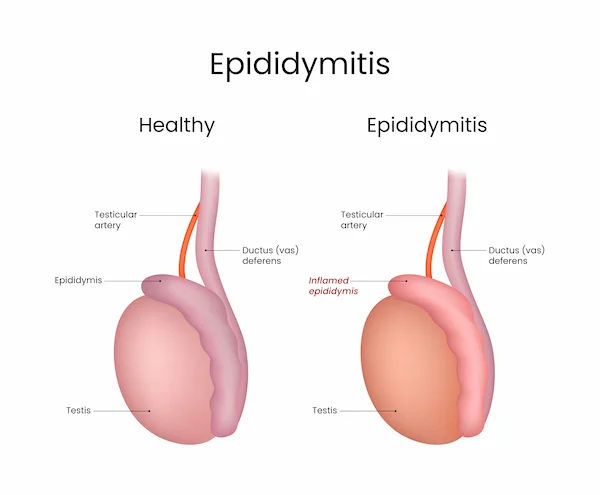Health Benefits of Almonds Nutrition Facts and FAQs
Discover the incredible health benefits of almonds! Learn about their essential nutrition facts, from healthy fats to fiber, and get answers to the most common FAQs. Start snacking smarter today for better heart health, blood sugar control, and more.

Written by Dr. M L Ezhilarasan
Reviewed by Dr. Shaik Abdul Kalam MD (Physician)
Last updated on 13th Jan, 2026

Introduction
Almonds are a small snack with big payoffs. Popular around the world (often grouped with “dry fruits”), almonds deliver healthy fats, plant protein, fiber, vitamins, and minerals in every handful. People often ask about almonds' benefits for heart and brain health, weight, and blood sugar—and the science is encouraging. This guide breaks down what’s in almonds, how they may support your health, simple ways to eat them, and answers to common questions.
What Are Almonds—and Are They “Dry Fruits”?
• Almonds are tree nuts, the edible seed of the almond tree (Prunus dulcis).
• In many regions, the term “dry fruits” is used colloquially to mean nuts and dried fruits together (like almonds, walnuts, raisins, dates). Nutritionally, almonds are a nut, not a dried fruit—but they’re often enjoyed in the same mix.
Science-Backed Almonds Benefits
Almonds have been studied as part of healthy eating patterns, such as Mediterranean-style diets. While no single food can prevent disease, regularly choosing nutrient-dense foods like almonds is linked with better health outcomes.
Heart Health and Cholesterol
• Healthy fats: Almonds are rich in monounsaturated fats (the same type found in olive oil) and contain polyunsaturated fats. Replacing foods high in saturated fat with nuts helps improve cholesterol profiles.
• LDL cholesterol: Eating nuts, including almonds, is associated with lower LDL (“bad”) cholesterol and overall cardiovascular risk as part of a heart-healthy diet.
• Inflammation and blood vessels: Nuts may help reduce inflammation and support healthy blood vessels, contributing to cardiovascular protection.
What this means for you: Swapping a refined snack (like chips or cookies) for a small handful of almonds can be a simple step toward better heart health.
Blood Sugar Support
• Low in carbohydrates and high in fiber and healthy fats, almonds have a low glycemic impact on their own.
• When eaten with higher-carbohydrate foods, almonds can help blunt post-meal blood sugar spikes. For people with or at risk for type 2 diabetes, replacing some refined carbs with nuts is a smart strategy within a balanced diet.
Tip: Try adding chopped almonds to oatmeal or salads, or pair a small handful with fruit for a steadier energy release.
Weight Management and Satiety
• Satisfying combo: The trio of protein, fiber, and healthy fats helps you feel fuller for longer, which may reduce mindless snacking later.
• Real-world studies show that including nuts in calorie-conscious diets does not promote weight gain and can aid adherence because nuts increase meal satisfaction.
• Not all calories may be absorbed: Due to their cell structure, a portion of almond calories is not fully available to the body, according to controlled feeding studies. This doesn’t mean almonds are “free” calories—portion size still matters—but it helps explain why nuts can fit into weight-management plans.
Smart portion: About 1 ounce (23 almonds) is a practical daily serving for most adults,
depending on your calorie needs.
Consult a Top General Physician
Brain Health and Nutrients for the Mind
• Vitamin E: Almonds are among the best natural sources of vitamin E, an antioxidant that helps protect cells from oxidative stress. Higher dietary vitamin E intake has been linked in observational studies to better cognitive health with aging.
• Vascular health: What’s good for your heart is good for your brain. Diets rich in unsaturated fats and nuts are associated with better cognitive performance and may help reduce age-related cognitive decline when combined with overall healthy lifestyle habits.
• Mediterranean-style eating: Research on Mediterranean diets supplemented with nuts shows potential cognitive benefits compared with lower-fat diets.
Bottom line: Almonds won’t boost memory overnight, but as part of a balanced pattern they may support brain health over time.
Gut, Skin, and Bone Support
• Gut: Almonds provide fiber and naturally occurring polyphenols (especially in the skin) that support a healthy gut environment. While research is emerging, nuts can contribute to overall fiber goals.
• Skin: Vitamin E supports skin health by helping guard cell membranes from oxidative damage.
• Bones: Almonds offer magnesium and small amounts of calcium and phosphorus. They complement, but don’t replace, other calcium-rich foods.
How Many Almonds Should You Eat Daily?
• A practical serving is 1 ounce (about 23 almonds), offering a nutrient-dense snack of roughly 164 calories.
• Your ideal amount depends on your calorie needs and goals. Many studies use 1–1.5 ounces daily. If you’re watching calories, measure a portion rather than eating straight from a large bag.
Almonds vs. Other “Dry Fruits”
• Almonds stand out for healthy fats, vitamin E, and magnesium.
• Dried fruits (like raisins, dates, apricots) are higher in natural sugars and carbohydrates but add fiber and micronutrients.
• A balanced “dry fruits” mix can pair nuts (almonds, walnuts, pistachios) with a smaller portion of dried fruit to keep sugars in check while boosting satisfaction.
Raw, Roasted, Salted, or Sliced—What’s Best?
• Raw vs. roasted: Both are nutritious. Dry-roasted (no added oils) or lightly oil-roasted almonds are fine. Choose unsalted or lightly salted to keep sodium in check.
• Almond butter: Offers similar nutrition; look for versions with just almonds (and maybe salt). Pair with apple slices, whole-grain toast, or celery.
• Almond milk: Unsweetened, fortified almond milk can be a low-calorie dairy alternative, but it’s much lower in protein than cow’s milk or soy milk. If you rely on plant milks, choose fortified options to help meet calcium and vitamin D needs.
• Sliced or slivered: Great for topping yogurt, oats, salads, and vegetable dishes to add crunch and nutrients.
Simple Ways to Add Almonds to Your Day
Breakfast
• Sprinkle chopped almonds on oatmeal or yogurt.
• Blend a tablespoon of almond butter into a smoothie.
Lunch
• Toss toasted almonds into salads or grain bowls.
• Add to a whole-grain wrap with veggies and hummus.
Snacks
• Pair a small handful with a piece of fruit.
• Make a homemade trail mix with almonds, walnuts, pumpkin seeds, and a small portion of dried fruit.
Dinner
• Use almond slivers to top roasted vegetables or sautéed green beans.
• Try ground almonds as part of a crust for baked fish or chicken.
• Baking:
• Swap a portion of flour for almond flour in pancakes or muffins to add richness and fiber.
Safety, Allergies, and When to Be Cautious
• Tree nut allergies: Almonds are tree nuts. If you have a nut allergy, avoid almonds and products that may contain them. Always check labels and consult your clinician for an allergy management plan.
• Kids: Whole nuts can be a choking risk for young children. Offer age-appropriate forms (such as thinly spread almond butter) and follow your pediatrician’s guidance.
• Sodium and sugar: Choose unsalted almonds and watch sweetened or flavored varieties (honey-roasted, candied), which can add extra sugars and calories.
• Kidney stones: Almonds are relatively high in oxalates. If you have a history of calcium oxalate kidney stones, ask your healthcare provider or dietitian how nuts fit into your individualized plan; you may need to moderate portions and pair with calcium-rich foods to help bind oxalate in the gut.
• Calories: Almonds are energy-dense. Enjoy them mindfully by measuring portions, especially when weight loss is a goal.
Consult a Top General Physician
Consult a Top General Physician

Dr. Anand Ravi
General Physician
2 Years • MBBS
Bengaluru
PRESTIGE SHANTHINIKETAN - SOCIETY CLINIC, Bengaluru

Dr. Vivek D
General Physician
4 Years • MBBS
Bengaluru
PRESTIGE SHANTHINIKETAN - SOCIETY CLINIC, Bengaluru

Dr Syed Mateen Pasha
General Physician
2 Years • MBBS
Bengaluru
PRESTIGE SHANTHINIKETAN - SOCIETY CLINIC, Bengaluru

Dr. Syed Ismail Ali
General Practitioner
7 Years • MBBS
Hyderabad
Apollo 24|7 Clinic, Hyderabad

Dr. Harshendra Jaiswal
General Physician/ Internal Medicine Specialist
12 Years • MBBS , MD (General medicine)
Kolkata
108 DHANA DHANVANTARI Clinic, Kolkata
(25+ Patients)
Consult a Top General Physician

Dr. Anand Ravi
General Physician
2 Years • MBBS
Bengaluru
PRESTIGE SHANTHINIKETAN - SOCIETY CLINIC, Bengaluru

Dr. Vivek D
General Physician
4 Years • MBBS
Bengaluru
PRESTIGE SHANTHINIKETAN - SOCIETY CLINIC, Bengaluru

Dr Syed Mateen Pasha
General Physician
2 Years • MBBS
Bengaluru
PRESTIGE SHANTHINIKETAN - SOCIETY CLINIC, Bengaluru

Dr. Syed Ismail Ali
General Practitioner
7 Years • MBBS
Hyderabad
Apollo 24|7 Clinic, Hyderabad

Dr. Harshendra Jaiswal
General Physician/ Internal Medicine Specialist
12 Years • MBBS , MD (General medicine)
Kolkata
108 DHANA DHANVANTARI Clinic, Kolkata
(25+ Patients)
More articles from General Medical Consultation
Frequently Asked Questions
Q1: Do almonds improve brain health or memory?
There’s no single “memory food,” but almonds provide vitamin E and healthy fats that support long-term brain health. Diets rich in nuts (like Mediterranean-style eating) are associated with better cognitive function compared with low-nut diets. Consistency and overall lifestyle (sleep, activity, blood pressure, and blood sugar control) matter most.
Q2: How many almonds should I eat daily?
About 1 ounce (roughly 23 almonds) is a common, balanced serving. Depending on your calorie needs, 1–1.5 ounces can fit well within a healthy eating plan.
Q3: Are roasted almonds as healthy as raw?
Yes, both are nutritious. Dry-roasted or lightly oil-roasted almonds are fine choices. Prioritize unsalted to limit sodium. Extremely high-heat roasting can slightly reduce some heat-sensitive compounds, but the overall nutrient profile remains strong.
Q4: Are almonds good for people with diabetes?
Almonds can be a smart choice because they’re low in carbs and high in fiber and healthy fats, which can help steady blood sugar when eaten with carbohydrate foods. Fit them into your individualized meal plan as advised by your clinician or dietitian.
Q5: Are almonds considered “dry fruits”?
In everyday language in some regions, yes—people group nuts and dried fruits under “dry fruits.” Botanically and nutritionally, almonds are tree nuts. Both nuts and dried fruits can be part of a healthy diet; just watch portions of dried fruits since they’re concentrated sources of natural sugars.




